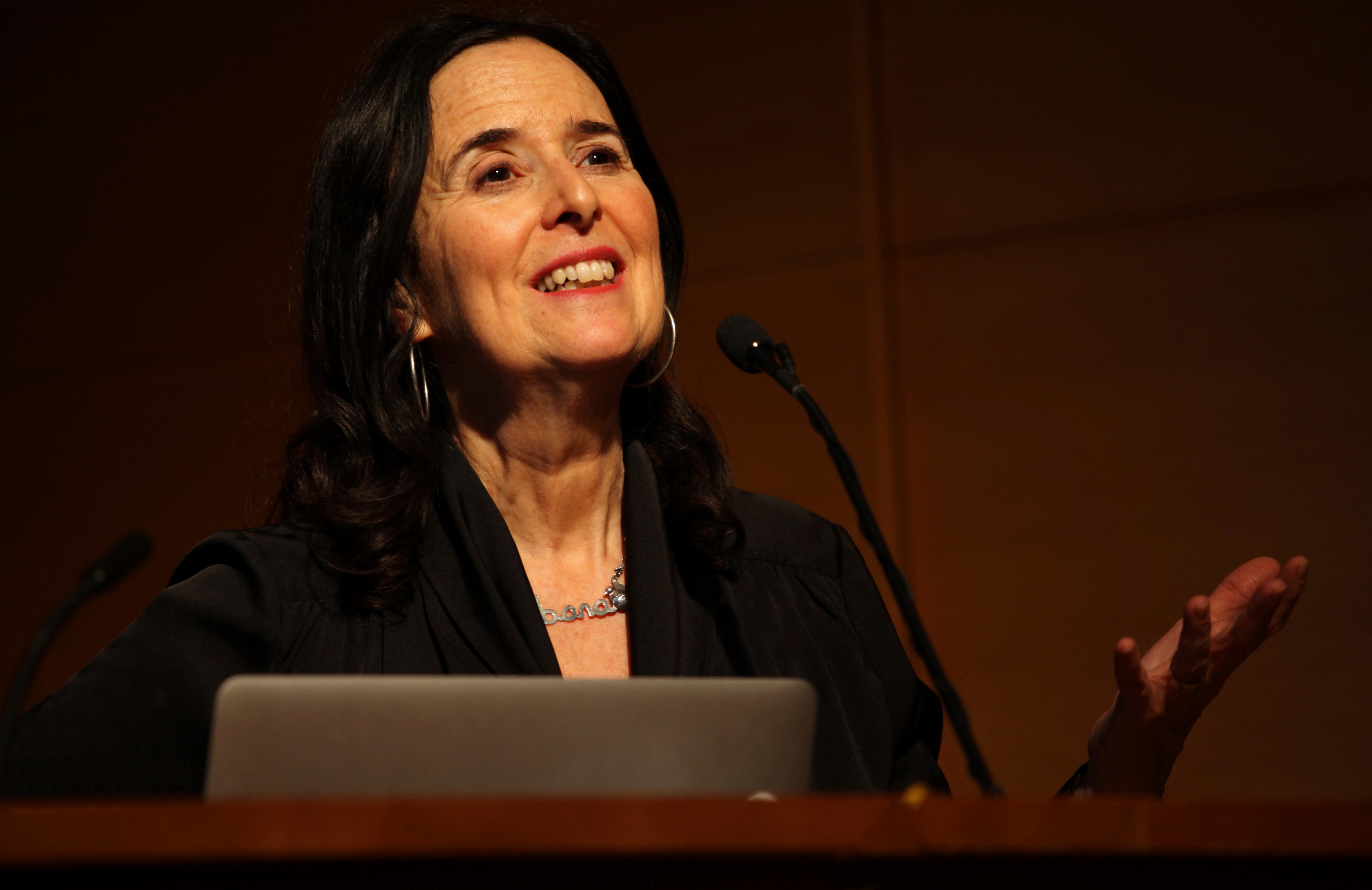Behar delivers 2019 Tenenbaum Lecture on the Jews of Cuba

Guest lecturer Ruth Behar of the University of Michigan delivered the 23rd Annual Tenenbaum Family Lecture in Judaic Studies on Wednesday, February 13, 2019 to a packed Ackerman Hall in the Michael C. Carlos Museum. Behar intertwined her own memories with Cuban history to deliver an illuminating talk on the little-known story of the Jews of Cuba and their diasporas.
Behar tracked migration to the island, starting with the arrival of American Jews and followed by waves of Sephardic and then Ashkenazi Jews. The former group hailed largely from Turkey and Syria, while the latter emigrated primarily from Poland. European Jews chose Cuba for its close proximity to the U.S. in the hope that they might one day find their way to America.
Behar weaved personal and historical narratives together as she discussed the relationship between the two Jewish communities. She noted that the Yiddish-speaking Ashkenazi and Ladino-speaking Sephardic populations were largely separate, illustrated by her own parents' story. Their union was considered an "intermarriage," her mother being Ashkenazi and her father Sephardic. Behar also discussed the occupations and livelihoods of Cuban Jews, who started as street peddlers and railroad workers and eventually became store owners, merchants, and factory owners. Her own grandfather owned a lace store in Havana.
Not all Jews were allowed onto the island—Behar related the infamous story of the German-Jewish refugees aboard the MS St. Louis who, fleeing the Nazis in 1939, were not allowed to disembark in either Cuba or the U.S. While this stain cannot be erased, Behar says,"I am Jewish because I am Cuban," crediting her family's survival and her own existence to her family's emigration.
Integral to this story is the Cuban Revolution of 1959. While most Cuban Jews were supportive of the revolution initially, the enforcement of atheism and the alignment with the Soviet Union led most of the estimated 15,000-20,000 Cuban Jews to leave the island. Today, a community of about 1,000 remains. Behar began travelling back to Cuba in the 1990's and documented her her experiences in memoirs and creative nonfiction such as An Island Called Home: Returning to Jewish Cuba and Traveling Heavy: A Memoir in between Journeys.
Held annually, the Tenenbaum Family Lectureship in Judaic Studies salutes the family of the late Meyer W. Tenenbaum ’31C-’32L of Savannah, Georgia. Tenenbaum, a native of Poland, arrived in the United States at the age of thirteen knowing no English, and graduated from the Emory School of Law eleven years later. He went on to head Chatham Steel Corporation, now a major steel service center with headquarters in Savannah.
The lectureship was established in 1997 by Meyer’s son, Samuel Tenenbaum ‘65C, and honors the entire Tenenbaum family and its ethos of citizenship and public service, which is expressed through its support of religious, educational, social service, and arts institutions across the United States.
Photo Credit: Myron McGhee